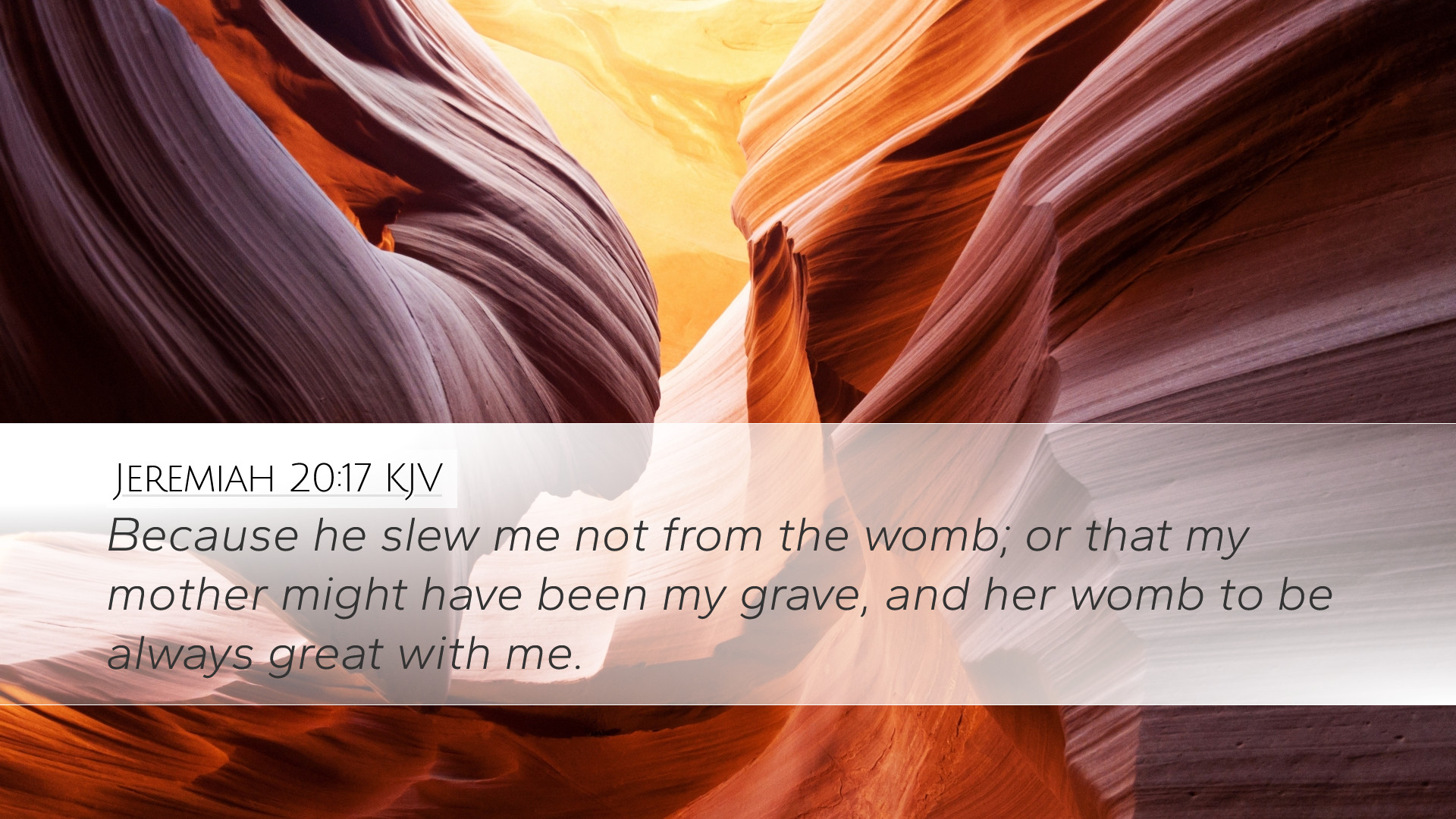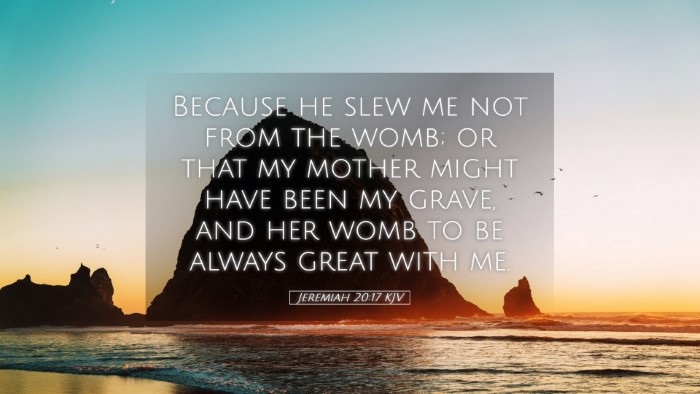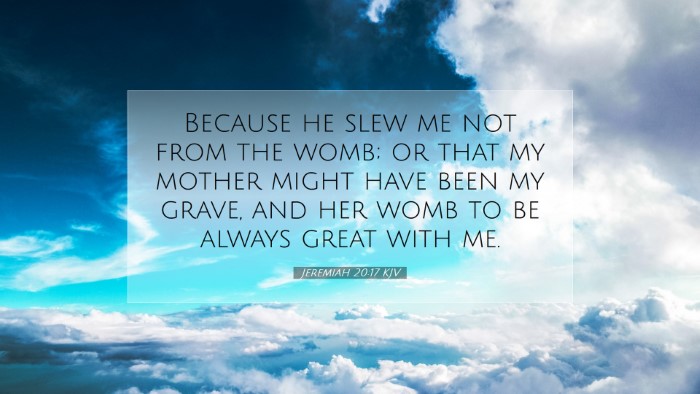Commentary on Jeremiah 20:17
Verse: “Because he killed me not from the womb; or that my mother might have been my grave, and her womb to be always great with me.”
Contextual Overview
Jeremiah 20:17 is part of a section where the Prophet Jeremiah expresses profound anguish and despair over his prophetic ministry and the subsequent persecution he faces. This verse articulates his wish that he had never been born, underscoring the heavy burden of being a prophet in a time of great unfaithfulness among God’s people.
The Burden of Prophecy
Jeremiah's lament reveals the deep emotional toll that prophetic calling takes on the individual. Matthew Henry, in his commentary, notes that the prophet was often the target of public scorn and personal isolation.
- Isolation: Jeremiah felt profoundly alone in his mission, as the people rejected his messages of warning and repentance.
- Despair: His cry illustrates the intense struggle between divine purpose and human suffering, a central theme in prophetic literature.
Insights from Albert Barnes
Barnes provides a nuanced look at Jeremiah's struggle, emphasizing that the prophet's deep sorrow stemmed from feeling that his suffering might have been avoided. The phrase "killed me not from the womb" conveys a sense of longing for a different fate—one where pain and rejection are not part of his reality.
- Divine Sovereignty: Barnes points out the paradox where God's purpose is fulfilled through human affliction.
- Human Emotion: He underscores that it is permissible for believers to express such anguish, as it reflects the genuine struggle between faith and the weight of trials.
Adam Clarke’s Perspective
Adam Clarke delves deeper into the spiritual implications of Jeremiah's lament. He presents the idea that the prophet’s despair is partly due to the relentless opposition he faced, which made him question the value of his prophetic role.
- Value of Existence: Clarke underscores the philosophical dilemma of existence in suffering—whether life carries intrinsic value in light of pain.
- Prophetic Identity: He also highlights how the identity of a prophet is bound with both divine calling and human vulnerability.
Application for Pastors and Scholars
This verse is not merely a historical lament but resonates with contemporary issues faced by pastors and scholars. The weight of preaching truth in a resistant culture often mirrors Jeremiah's experience.
- Encouragement in Ministry: Understanding Jeremiah’s struggle can provide solace and affirmation for those in ministry who feel overwhelmed.
- Engagement with Human Emotion: The raw honesty in Jeremiah’s expression can teach leaders to be open about their own struggles, thus fostering a culture of vulnerability in their congregations.
Theological Reflections
Exploring Jeremiah 20:17 through the lens of various public domain commentaries allows for rich theological reflection. The connection between prophetic suffering and divine purpose invites deeper consideration of what it means to engage in God’s work, especially in difficult circumstances.
- Suffering and Sovereignty: The interplay between suffering and God’s sovereignty is a pivotal concept, suggesting that human pain can be a part of God’s larger plan.
- Existential Questions: This passage prompts existential inquiries about purpose, the nature of divine calls, and the reality of human suffering.
Conclusion
Jeremiah 20:17 serves as a profound reminder of the struggles faced not only by Biblical figures but also by those who serve the church today. The combined insights from commentaries emphasize the importance of addressing emotional and spiritual turmoil with candor and reflection. Pastors, students, and theologians can draw from Jeremiah's experience to better empathize with those in their communities who may feel similar burdens, encouraging them to find hope anchored in God's sovereignty amidst sorrow.


